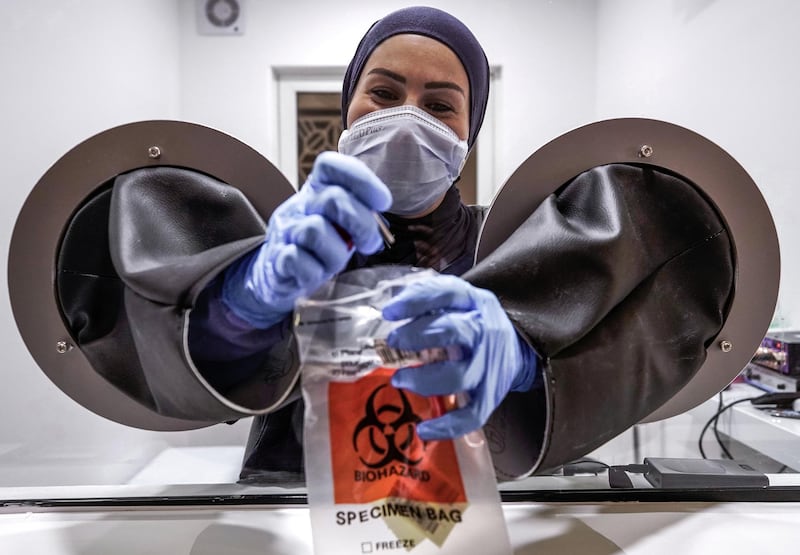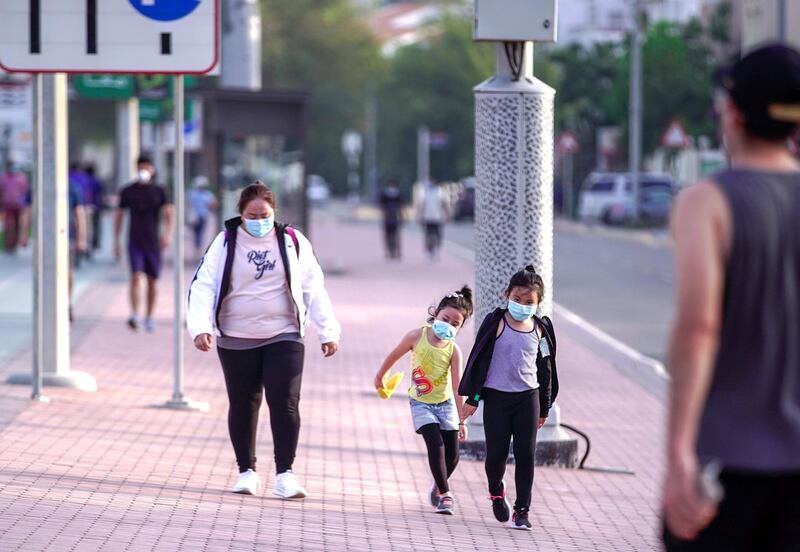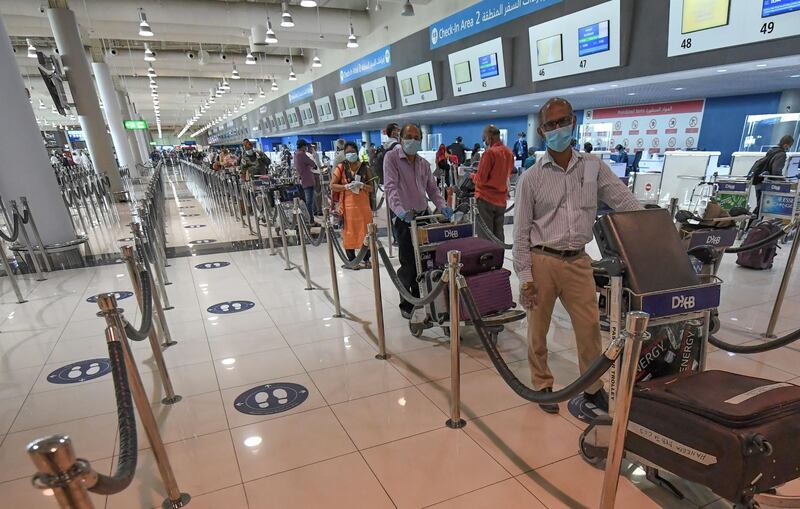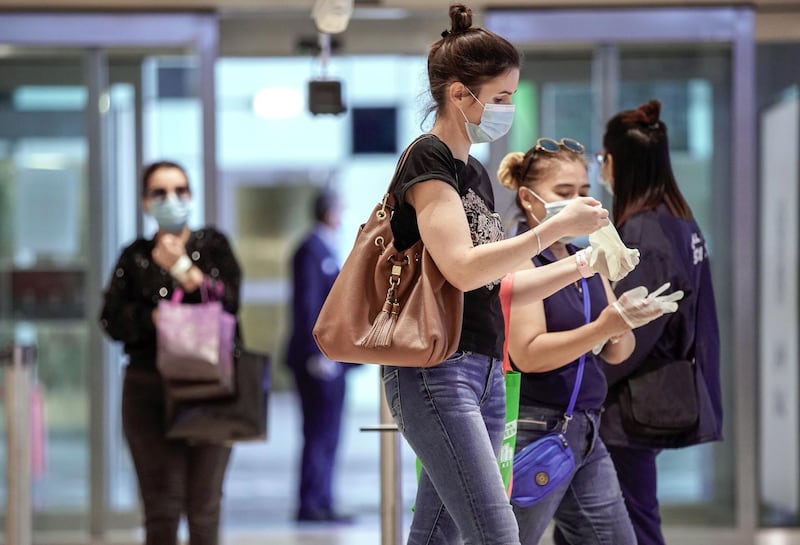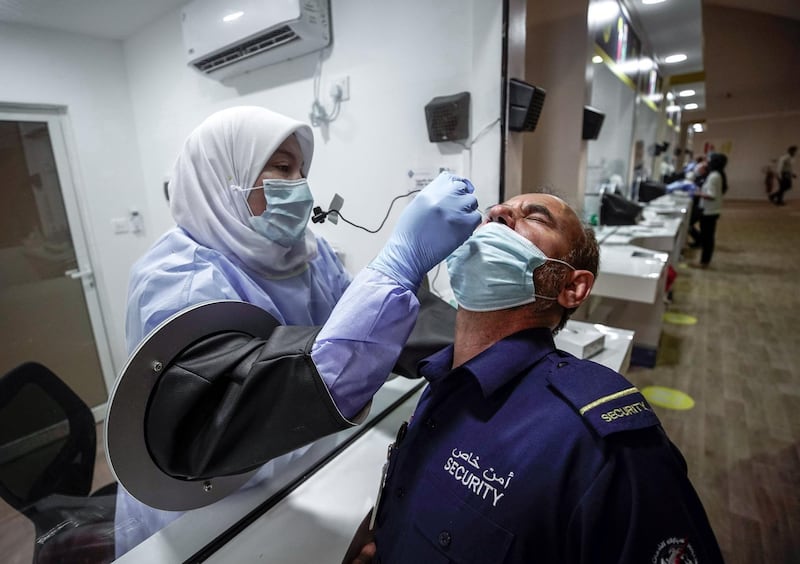Doctors in the UAE have urged diabetic patients to adhere to strict precautionary measures and seek medical help but not get overly concerned about their underlying health issue amid the coronavirus pandemic.
Diabetes does increase a patient’s risk of dying but the UAE’s mass testing and early detection strategy has helped identify and treat high risk patients at an early stage.
At a national coronavirus update on Monday, Dr Amna Al Shamsi, official spokeswoman for the UAE government, revealed that 40 per cent of Covid-19 deaths in the country have been linked to the disease and urged the public to pay more attention to groups at risk.
Doctors advise full caution for those with chronic health problems like diabetes, but they said the number of deaths during the coronavirus pandemic is similar to what hospitals reported in previous outbreaks like the 2003 Sars virus and the H1N1 flu pandemic of 2009.
According to the International Diabetes Federation, 18 per cent of the UAE population is diagnosed with diabetes and almost 30 per cent are classed as obese, another co-morbidity, but the overall deaths rates from the virus remain low.
Out of 42,636 confirmed cases on Tuesday, the country has reported 291 deaths - which is a 0.6 per cent death rate.
“The fatality rates generally have been quite low compared to other countries as we have been able to detect these cases early,” said Dr Vikas Bhagat, head of critical care at Aster Hospital in Mankhool.
“Patients with diabetes are presenting early to the hospital so we have some buffer time to treat them effectively.
“Rapid widespread testing has been a big help in getting these cases at an early stage.
“If they have not yet progressed to a serious disease, they are easier to treat.”
Medics at Aster Hospital said diabetes is the most common co-morbidity illness they are recording in coronavirus patients.
That is followed by hypertension and coronary heart disease.
Type 1 diabetic patients generally have a depleted immune response to infection.
That can lead to serious complications like pneumonia.
Those who are obese with a Body Mass Index above 30, are also at greater risk as they also have an impaired immunity response.

However, as fewer seriously ill patients are being seen at the hospital the virus may be weakening, Dr Bhagat said.
“Diabetes is the worst comorbidity for multiple reasons, as we have seen in Sars, Mers and also the H1N1 patients who also had a mortality rate of about 40 per cent,” he said.
“That is consistent with what we are seeing now and they are suffering more severe lung damage as a result.
“Thankfully, there are far fewer serious cases in our hospital now, maybe because of some herd immunity or earlier detection in the general population.”
So far, a mammoth public health testing campaign has screened more than two million people for the virus.
Elsewhere, doctors reported obese patients with Covid-19 often spend more time on a ventilator and in intensive care, while taking longer to recover.
Because of the extra risk, Dr Dinesh Dhanwal an endocrinologist at NMC Speciality Hospital, Abu Dhabi said diabetic patients should take extra care and remain indoors.
“The two most important factors which put diabetes patients at an added risk of mortality are obesity and insulin therapy,” he said.
“While at home these individuals should do more frequent glucose monitoring.
“If readings go out of range they should get in touch with their doctor to upgrade treatment and if need be take insulin.”
Dr Dhanwal said diabetic patients admitted to hospital with coronavirus should be monitored closely, as they were more at risk from an "inflammatory storm” - a serious condition that can result in organ failure.
“If infection happens in someone with diabetes, then they should be admitted in secondary or tertiary care hospitals as their condition can deteriorate very rapidly,” he said.
